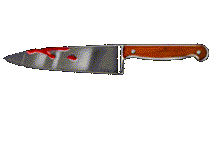VERY Short Synopsis
American Psycho is a film about Patrick Bateman, a man who is unsure about his identity. He wants desperately to fit in with the other yuppies, but also wants to be an intelligent free-thinking individual. Eventually his internal conflict becomes so troubling that he finds catharsis by murdering people.
Read the full, spoiler-rich plot on Wikipedia here.
What About American Psycho?

Back in eighth grade, my friend Steve read Bret Easton Ellis' 1991 novel American Psycho (see next header). Of course I'd heard of it before this because of misinterpretations for the main character, Patrick Bateman — but it was moreso Steve telling me about the book that made me want to watch the movie. I can't say much that hasn't already been said, but I think it is very cool in many aspects.
What I personally feel so charmed by is the soundtrack, which has so many amazing songs all from artists I love. Patrick breaks down these musicians (Genesis, Huey Lewis and the News, Whitney Houston) because he wants to feel smart, he wants people to know he doesn't just listen to music but that he understands it and wants his opinions heard and validated. He also picks pop music because it is usually just skin deep and its all he understands and has ever known and most of it is just dates, record sales, chart positions and various facts about the artists without any true analysis. He basically recites the albums wikipedia page with a random nugget or two of actual analysis. A good quote for this is during the Genesis speech.
"I've been a big Genesis fan ever since the release of their 1980 album, Duke. Before that, I really didn't understand any of their work. Too artsy, too intellectual."
Phil Collins, whose solo career is referenced in the book, recalled: "I didn't read it. At the time, I just thought, 'That's all we need: glorifying all this crap. I'm not interested'. Then the film came out, and I thought it was very funny".
He admits that he is too dense to understand anything that he finds "too artsy". This is evidenced by his apartment as well. His artwork looks to be all contemporary undoubtedly purchased either for him or recommended based on artist name, he has a Les Miserables poster (The play had just come out in the films timeline), and a bunch of pop music cds. He only likes what's popular, essentially because its popular. Ironically, no one he speaks to about music every really listens to what he is saying.
The 1991 Novel

Many movies exist and have had their runs in Hollywood because they've been adapted from books, and American Psycho is no different. Written by Bret Easton Ellis and published in 1991, American Psycho revolves around, more or less, the same man with the same story. The main difference in the two is that the book has much more detailed, sadistic depictions of graphic torture, mutilation, and cannibalism.
Following the release of American Psycho, Ellis later wrote that people assumed that American Psycho would end his career. It was originally to have been published by Simon & Schuster LLC in March 1991, but the company withdrew from the project because of "aesthetic differences".
THIS IS A SPOILER. The book ends as it began, with Bateman and his colleagues at a new club on a Friday night, engaging in banal conversation. All the men in the bar agree that economic success does equal happiness before reruns of the inauguration of George H. W. Bush and a Ronald Reagan speech appear on the bar's TV. The book closes with a description of a sign in the bar — with the text appearing in all caps and in a different font from all the rest of the novel's text — that reads "THIS IS NOT AN EXIT."
In 2000, writer Guinevere Turner and writer/director Mary Harron adapted American Psycho into a dark, comic film released by Lions Gate Films in United States and Columbia Pictures elsewhere. The screenplay we see was one of three presented, and one of those three was a screenplay by Ellis himself.










